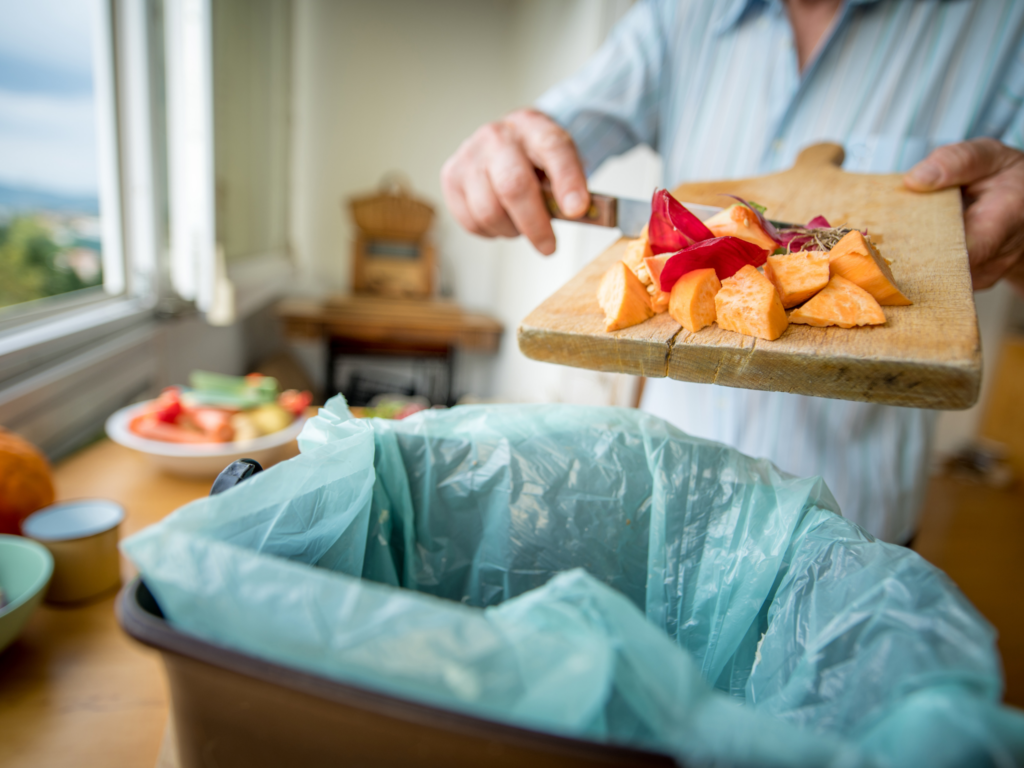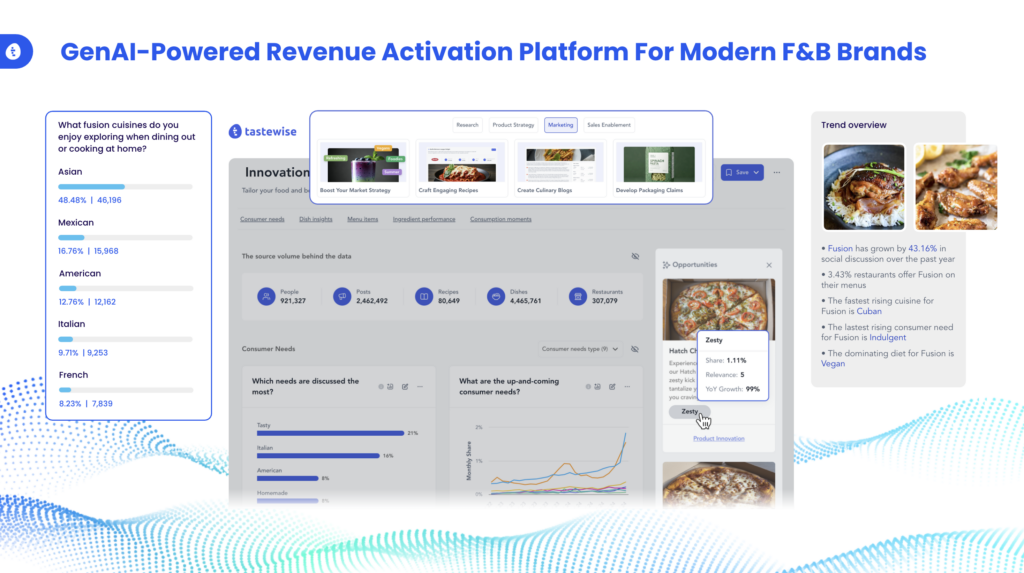
Tastewise has secured $50M in a Series B round to scale its AI platform for food companies across the globe, part of which includes tackling food waste.
Already working with some of the world’s largest food and beverage companies, Israeli startup Tastewise has raised $50M in Series B funding to scale its AI-led marketing platform.
The company analyses over 75 billion social media posts, a trillion online recipes, and a trove of reviews, grocery, and restaurant data to inform sales materials, campaigns, and product and menu development, helping businesses save food waste through successful product launches.
The funding round was led by Telus Global Ventures, with participation from Duo Partners, Peakbridge, Disruptive AI, and Pico. It takes Tastewise’s total funding to $72M.
“Our platform doesn’t just uncover what drives consumers – it helps brands act on that insight. This investment allows us to scale globally while continuing to empower our partners to stay agile, relevant, and ahead of change,” said CEO Alon Chen, who founded the startup in 2017 with Eyal Gaon.
“We help decode trends, the needs behind them, and build new product concepts, flavours, and marketing to maximise consumers’ enjoyment of the product, therefore maximising revenue activation for the companies and minimising waste at the consumer level,” Chen said in a recent interview with Green Queen. “Ultimately, people are far less likely to waste food they enjoy.”

How Tastewise helps the food industry reduce waste
Tastewise already works with over half of the food and beverage companies on the Fortune 100 list, including Mars, Kraft Heinz, and PepsiCo.
The generative AI platform combines brand data with trillions of real-time food signals to help brands develop products tailored to consumer demand, and at a faster pace. It saves them time and money, as well as prevents food waste.
According to the company, it can take brands 12 to 24 months to develop and launch new products and by the time they hit the market, consumers’ tastes may shift, rendering the products unsuitable to their evolving preferences.
As a result, brands launch products with low demand, retailers overstock them, and restaurants misjudge preferences. According to Tastewise, nine out of 10 product launches fail and lead to large amounts of waste.
Its AI platform, it argues, allows brands and restaurants to “reduce waste at the source”. “By refining product-market fit and marketing strategies before production even begins, Tastewise helps retailers reduce inefficiencies and prevent unnecessary food waste,” Chen explained.
“While Tastewise cannot curb food waste by itself, what it can do is provide companies with the tools and the 360° view needed to create products that consumers won’t waste,” he added. “We base this on what they value, how they prefer to eat, which dishes or ingredients work in different eating environments, and what they’re discussing.”
For example, its research has shown that specific foods and cuisines influence nine times more consumers than convenience.

AI can transform food waste reduction in the climate fight
Globally, a third of all food is wasted, resulting in up to 10% of all emissions (five times greater than the aviation industry). When it ends up in landfill, it releases a large amount of methane, a gas with an 80 times higher warming potential than carbon dioxide over a 20-year period.
According to climate action non-profit Project Drawdown, following plant-rich diets and reducing food waste are the two most impactful actions individuals can take to fight the climate crisis and lower personal GHG emissions.
While a chunk of this comes from households, businesses are major contributors too. In the US, for example, the manufacturing, foodservice and retail sectors account for 51% of all food waste.
Experts suggest that AI will significantly change how we tackle food waste. “Machine learning, a subset of AI, has the capacity to process significantly more data than a human and can, for example, make predictions like how many apples would sell on a rainy day in October in Boston based on past trends,” Sara Burnett, executive director of US non-profit ReFed, told Green Queen in February.
Tastewise stands to win here. It will use the funding to fuel growth in North America, Europe, and Asia-Pacific, while expanding its toolset and deepening integration with marketing tech stacks.
“By empowering the food industry to act more intentionally at every stage – from product ideation to point of sale – Tastewise contributes to a broader transformation in how food is valued and managed, ultimately challenging the norm of waste and replacing it with efficiency and purpose,” Chen told Green Queen.
Other startups deploying AI to fight food waste include Winnow, Freshflow, Orbisk, Positive Carbon. and Zest. The latter is currently Nestlé, Google Cloud and other companies on a trial to redistribute the equivalent of up to 1.5 million surplus meals.
The post Tastewise Raises $50M to Scale AI Platform That Helps Food Companies Cut Waste appeared first on Green Queen.
This post was originally published on Green Queen.